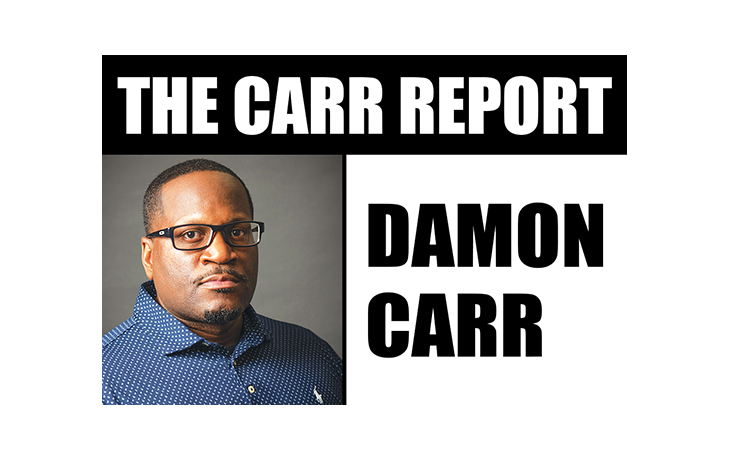Adobe Stock Photo
Hurricanes are among nature’s most devastating forces, leaving behind destruction that affects entire communities. While the immediate concerns focus on physical damage—homes destroyed, streets flooded, and power outages—many homeowners face an unseen storm: financial devastation. Alarmingly, 70 percent of homeowners report feeling blindsided by their insurance coverage after a hurricane, as they realize too late that their policies don’t cover as much as they thought.
When Hurricane Helene hit, it wasn’t just the winds and floods that wreaked havoc. Many homeowners discovered they were underinsured, particularly when it came to flood damage. A significant number of homeowners were shocked to learn that their policies did not cover flood-related losses, despite paying premiums for years.

The Gaps in Insurance Coverage
One of the main reasons for this sense of betrayal is the common misunderstanding about what standard homeowners insurance covers. Most standard policies do not include flood insurance, which must be purchased separately. For many, the realization that their policy excludes flood damage comes too late—often after floodwaters have already filled their homes.
This issue became glaringly evident during Hurricane Helene, where homeowners who lived outside of federally designated flood zones thought they didn’t need flood insurance. Unfortunately, natural disasters do not always follow predictable patterns. Many areas considered safe from flooding experienced severe water damage, leaving families struggling to recover financially.
Adding to this problem are recent changes in insurance policies. Higher deductibles, especially for hurricane-related claims, leave homeowners with larger out-of-pocket expenses. For instance, some policies now require homeowners to cover up to 5 percent of their property’s insured value before insurance kicks in—a crippling expense for many.
The Insurance Battle After a Storm
It’s not just about the coverage; it’s about the process of filing a claim. In the wake of Hurricane Helene, many homeowners are finding themselves embroiled in lengthy battles with their insurance companies over what is and isn’t covered. While it’s still in the early days for many of these claims, the typical process can be slow and frustrating. It’s not uncommon for homeowners to experience delays lasting several weeks or months before receiving compensation.
For some, the initial shock comes when an insurance adjuster’s estimate for repairs is far lower than expected. This can lead to disputes that further delay payments, forcing homeowners to dip into savings or take on debt to begin immediate repairs.
The financial toll of these delays, even if they last just a few weeks, can be significant. Without access to emergency savings or other financial resources, families may struggle to cover the upfront costs of home repairs, temporary housing, and everyday expenses.
The Financial Crisis That Follows
Hurricanes don’t just damage homes and properties—they also disrupt local economies. Jobs are lost, small businesses close, and incomes dwindle as communities work to rebuild. This is especially true for hourly workers and small business owners who rely on steady cash flow.
Many families, already stretched thin, turn to credit cards to cover their mounting expenses. Unfortunately, high-interest debt can quickly spiral out of control, compounding the financial crisis. The longer the recovery process takes, the more debt piles up, creating a financial burden that can last for years.
Without a proper financial plan in place, this cycle can become overwhelming. Too often, families find themselves withdrawing from retirement savings or facing bankruptcy just to make ends meet.
How to Financially Prepare for the Next Storm
In the face of increasingly strong and frequent hurricanes, it’s crucial to be financially prepared. Here are some steps homeowners can take to mitigate the financial impact of future storms:
Review Your Insurance Coverage: Take a close look at your homeowners insurance policy. Ensure you understand what is covered, particularly regarding flood damage. If your policy doesn’t include flood insurance, consider purchasing a separate flood policy—even if you don’t live in a designated flood zone.
Understand Your Deductible: Many policies have separate deductibles for hurricane-related damage. Know how much you will be responsible for before your insurance kicks in. If it’s a significant percentage of your home’s value, make sure you have the financial reserves to cover it.
Build an Emergency Fund: One of the best ways to prepare for financial uncertainty after a disaster is to have an emergency fund. Aim to save at least three to six months’ worth of living expenses in a separate, easily accessible account. This fund can help cover immediate costs, such as temporary housing or home repairs, while you wait for insurance payouts.
Diversify Your Income: If you live in an area prone to hurricanes, consider diversifying your income streams. Relying solely on one job or business can be risky, especially if that income is disrupted by a storm. Consider developing side income sources or working in industries that are less vulnerable to weather-related disruptions.
Limit Your Debt: Reducing existing debt before disaster strikes can help you manage post-storm expenses more effectively. Prioritize paying off high-interest debt, such as credit cards, and avoid taking on new debt unless absolutely necessary.
Create a Disaster Plan: Financial preparedness is just one part of your overall disaster plan. Make sure you have important documents, such as insurance policies, stored in a safe place (preferably waterproof). Additionally, keep an inventory of your belongings, including photos, to streamline the insurance claims process.
Stay Informed About Policy Changes: Insurance companies often adjust policies and premiums after major storms. Stay up to date on any changes to your coverage, and consider switching providers if you find a policy that offers better protection for your needs.
Hurricane Helene was a stark reminder of how financially devastating natural disasters can be. But with the right preparations, you can lessen the blow. Start by reviewing your insurance policies, building up savings, and making a clear financial plan for recovery. By being proactive, you can ensure that you’re not blindsided when the next storm hits.
(Damon Carr, Money Coach can be reached @ 412-216-1013 or visit his website @ www.damonmoneycoach.com)


